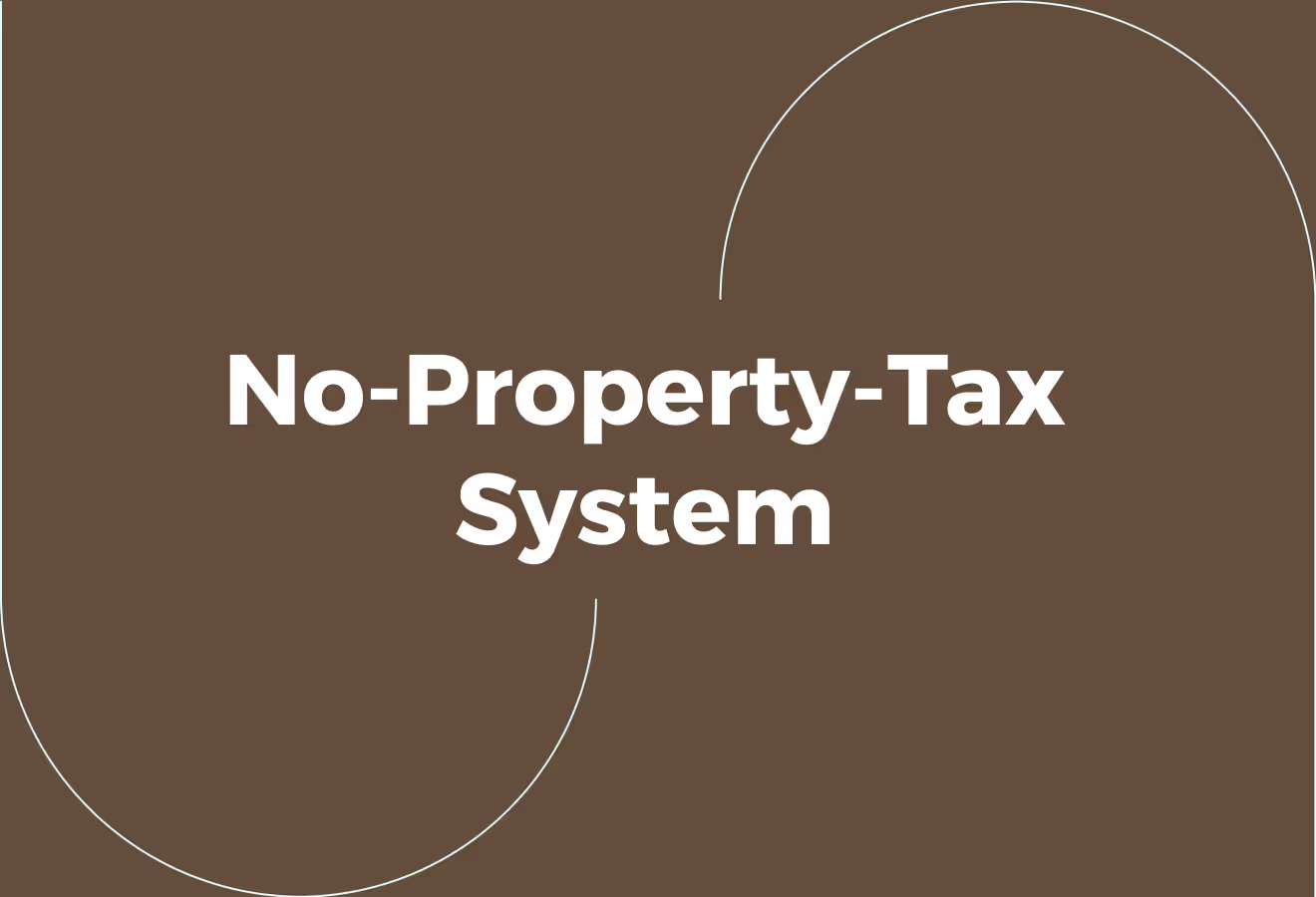Is There Property Tax in Dubai? Ownership Costs, Fees, and What to Expect
.avif)
Is There Property Tax in Dubai? Ownership Costs, Fees, and What to Expect
If you are buying a home in Dubai or advising a business under the UAE Companies Law, you probably want a clear answer: Is there a property tax that will reduce your returns? This article cuts through the confusion surrounding property taxes in Dubai. It explains the real costs you will face, from Dubai land department transfer and registration fees to municipal housing charges, service charges, strata and maintenance fees, VAT on commercial transactions, and how corporate ownership and corporate tax can impact the picture. Read on to learn whether property taxes apply, what ownership costs to expect, and which fees matter for individuals and companies.
To help with this, Cercli’s global HR system gathers payroll, housing allowances, and compliance data, allowing companies to estimate actual ownership costs, track fees, and stay compliant with the UAE Companies Law without additional paperwork.
Summary
- Dubai imposes no annual property tax, which simplifies compensation and modelling because there is 0% income tax and 0% capital gains tax for typical local transactions.
- Operational costs drive net yields more than taxes, with landlords spending an average of £1,200 on property repairs in 2024 and maintenance costs rising 5% that year, so service charges and upkeep materially determine returns.
- Market activity and turnover add administrative burden, illustrated by a 35% increase in property transactions in 2022, which amplifies reconciliation work, tenant churn risk, and short-term pricing volatility for payroll and HR teams.
- Small statutory levies are operationally significant, for example, a AED 250 knowledge fee and a AED 10 innovation fee, so inconsistent coding of these items creates unexplained payroll variances.
- Simple controls prevent one-off charges from becoming systemic problems: apply three core measures, separate payroll codes for stipends versus vendor transfers, require statutory receipts for reimbursements and deposits, and pre-authorise maintenance spend above a threshold.
- Cross-border ownership and repatriation rules alter operational exposure, so stress-test structures against international benchmarks. Notably, foreign buyers accounted for 4% of U.S. existing-home sales in 2025, with an average purchase price of $598,000.
Cercli’s global HR system addresses this by centralising payroll rules, mapping housing and vendor payments to payroll codes, and storing statutory receipts so teams can reconcile allowances and vendor invoices across MENA.
Is There Property Tax in Dubai

Dubai does not impose an annual property tax on residential or commercial property. Ownership typically carries one-time transaction and registration fees, but there is no recurring levy simply for holding real estate in Dubai.
How Does That Affect Payroll And Take-Home Pay?
When we model compensation packages for relocations to Dubai, the predictable tax environment simplifies gross-to-net calculations. The Dubai Property Tax Guide, 2025, confirms a 0% Income Tax Rate, which means employers do not need to withhold personal income tax at source; therefore, salary administration is straightforward compared to many Western jurisdictions. That clarity makes it easier to set fixed housing allowances and to present net pay to candidates without complex withholding scenarios.
What Does This Mean For Property-Related Capital Events?
For employers and investors, domestic gains from selling property in Dubai do not attract a direct federal tax, as noted by the Dubai Property Tax Guide 2025, which found a 0% Capital Gains Tax rate. That reduces the need to build local capital gains provisions into compensation arrangements tied to property or relocation bonuses. You still need to map an employee’s home-country tax residency to avoid surprises on cross-border taxable events.
Most Teams Handle Housing Allowances The Familiar Way
Most teams manage housing by adding a flat stipend to payroll because it is quick and visible. That approach works when headcount is small and entities are few, but it breaks down as your footprint grows. Spreadsheets multiply, policy exceptions creep in, and reconciling becomes a monthly drain, who paid what for:
- Visas
- Temporary accommodation
- Landlord registrations
The cost is not the absence of a property tax itself; it is the administrative friction and compliance risk that shows up when organisations treat housing as an afterthought.
How Can Employers Avoid Fragmentation And Compliance Gaps?
If you need a practical step, treat housing and property-related payments as part of a unified payroll and HR data model, rather than as a parallel process.
Solutions like Cercli centralise:
- Payroll rules across entities
- Enforce local regulatory checks automatically
- Keep a single source of truth for:
- Allowances
- Reimbursements
- Contractor payments
Teams find that moving rules out of spreadsheets into a system turns a weekly reconciliation task into an auditable, one-click report, cutting the time and error rate involved in cross-border payroll.
Why This Clarity Matters To People, Not Just Spreadsheets
This pattern appears across expatriate hiring and investor budgeting:
- The absence of an annual property tax gives predictable ownership costs
- That predictability is what clients often describe as relief when modelling five-year returns or explaining total compensation to recruits.
For employees, predictability reduces anxiety about hidden, recurring bills; for employers, it means clearer benefit design and fewer surprise liabilities during audits.
What You Should Action This Week
Start by mapping every housing-related payment you make to a payroll code, labelling whether it is a stipend, reimbursement, or vendor payment. Then, apply a single review workflow across entities to ensure that local registration requirements and visa obligations are not overlooked. Teams that do this early avoid manual cleanups and contested year-end reconciliations. That clarity sounds final, but there is a twist that most people only see when they start reconciling line by line.
What Costs Replace Property Tax in Dubai?
These replacement costs are mostly predictable, one-off or usage-based charges that sit outside salary taxation but still shape how you design:
- Pay
- Allowances
- Reimbursements
For employers, the practical issue is operational: turning irregular property-related bills into repeatable payroll workflows ensures compliance, cash flow, and employee expectations align.
What Should We Do With Small Statutory Surcharges?
Small, fixed levies can throw off reconciliations if they are treated as exceptions. For example, a knowledge fee of AED 250 is recorded as a fixed administrative charge, according to PRO Services in Dubai. It should be coded consistently in your accounts so it does not land as an unexplained payroll variance. There is also a nominal AED 10 innovation fee, as cited by PRO Services in Dubai, which is another statutory line item that should be mapped to a vendor code rather than a salary line when possible.
How Do Recurring Service And Utility Bills Belong In Payroll Or Expense Workflows?
Treat service charges, DEWA, and district cooling as operational vendor liabilities unless you explicitly reimburse the employee. When a company leases housing for staff, the payment remains an employer expense; when you convert that into a cash housing allowance, it becomes payroll, subject to WPS reporting rules and any payroll coding standards you follow.
The practical difference matters for:
- Audit trails
- VAT invoices
- For employees
They need clear, itemised pay slips that separate salary from reimbursements.
When Do Municipality Or Occupier Fees Affect Take-Home Pay?
If you pay the employee a gross housing stipend, it affects disposable income and, therefore, the perceived competitiveness of the package; it does not alter statutory payroll withholding in the UAE. Where municipality fees are paid by the tenant or passed through by the employer, make the transfer explicit in contracts and payroll records to ensure salary benchmarking remains accurate and cost-of-housing conversations remain grounded in numbers, not intuition. Most teams process these payments through AP and expense claims because it is familiar and requires no new tooling.
Platforms like our Cercli HR systems centralise:
- Approvals
- Map vendor and payroll transactions to single codes
- Compress reconciliation cycles from days to hours
They are keeping a clear audit trail.
What Practical Controls Stop One-Off Charges From Becoming Ongoing Headaches?
- Define a small set of payroll codes:
- Stipends
- Taxable benefits
- Non-taxable reimbursements
- Vendor payments
- Require a VAT invoice or statutory receipt for every property-related outflow, and store it against the employee record so renewals and visa audits are traceable.
- Align payment timing with payroll runs to avoid mismatched months; if a service charge arrives mid-cycle, treat it as the next payroll period’s adjustment.
These steps convert irregular liabilities into repeatable processes, reducing disputes and late fees.
Why This Matters Beyond Accounting.
After working with regional teams to open UAE entities, the pattern became clear: predictability in fees reduces hiring resistance and candidate anxiety, but only when payroll delivers clarity. When payments are messy, employees feel uncertain; when payroll presents clear, itemized charges, trust grows and HR receives fewer one-off queries.
Uncovering the True Cost of Fragmented Records
Cercli is designed for companies in the Middle East who need a flexible, compliant, and reliable way to manage their workforce, whether teams are local, remote, or spread across multiple countries. For teams handling property-related allowances and statutory charges, Cercli’s HR system centralises:
- Payroll rules
- Enforces local regulatory checks
- Keeps one source of truth for:
- Allowances
- Reimbursements
- Contractor payments
That sounds tidy, until you start tracing every invoice back to a single payroll code and discover the fundamental reconciliation gaps.
Related Reading
- UAE Companies Law
- Can Foreigners Buy Property in the UAE
- Can US Citizens Buy Property in Saudi Arabia
- Do You Have to Pay Taxes in Dubai
- LLC Company Formation in Dubai
- Setting Up a Company in Saudi Arabia
- How to Get a Trade License in Saudi Arabia
Costs for Property Investors and Landlords

Dubai’s headline costs for investors and landlords are operational rather than fiscal:
- Predictable transaction and registration fees
- Ongoing service charges
- Maintenance and insurance
- Occasional regulatory levies
Those line items shape yield more than tax does, so your modelling and payroll treatment need to focus on volatility in running costs, not on tax withholding.
Which Operational Items Change My Net Yield?
Service charges, maintenance, and insurance are the recurring levers that move returns. Service charges can vary dramatically by building and often explain why two identical units produce very different net yields. Maintenance is the regular surprise; it is the expense category that increases when buildings age or when catch-up work is scheduled. The figures behind that risk are precise in other markets, and they matter here too: Landlords spent an average of £1,200 on property repairs in 2024. According to the UK Government’s Property Rental Income Statistics, 2025, treating maintenance as a line-item reserve rather than an ad hoc bill prevents minor issues from becoming yield-eaters.
How Fast Are Those Costs Moving, And Why Should Payroll Teams Care?
Costs are inching up, not collapsing. The average maintenance cost for landlords increased by 5% in 2024. That trend, shown in the same UK dataset, signals that what felt like “one-off” repairs are becoming recurring budget items. For payroll and compensation teams, that changes how you build housing allowances and reimbursements, because allowances that looked generous two years ago may no longer cover net housing costs after higher service or repair charges are applied.
What Do Teams Normally Do, And Where Does It Break Down?
Most teams stick with the familiar route, routing housing stipends and reimbursements through expense claims or accounts payable, because that requires no new tooling and feels controllable.
That approach works for small teams, but as:
- Headcount
- Property count
- Cross-entity leases grow
The same habit produces:
- Fragmented records
- Slow reconciliations
- Brittle audit trails
Platforms like Cercli provide a bridge here, centralising payroll and vendor payments, automatically enforcing local regulatory checks, and maintaining a single source of truth. This enables reconciliations to compress from days to hours while preserving the receipts auditors require.
How Should Employers Structure Allowances And Reimbursements To Reduce Disputes?
Treat each payment by its legal reality and by auditability:
- Classify payments clearly:
- Vendor-paid rent
- Taxable cash allowance
- Refundable deposit
- Require a statutory receipt for repairs or deposit returns, and store it against the employee record so you can prove the flow in visa audits or expense reviews.
- Use tiered allowances tied to bands of expected service charges, rather than a flat number for everyone, because service charges and maintenance realities differ by building and neighbourhood.
This reduces the tension tenants feel when deposits are withheld for minor issues, and it keeps HR from becoming the complaint desk.
When Should You Change Pricing, Benefits, Or Provisioning Models?
Suppose recurring running costs, namely service charges plus your expected maintenance reserve, begin to consume more than a targeted slice of rent revenue. In that case, you should re-evaluate either the rent level you seek or the allowance you provide. The decision rule we use is simple: if running costs push the projected net yield below your target by more than one-third, remodel the package. That might mean shifting from a cash stipend to direct landlord payments for senior hires, or offering employer-leased accommodation for short windows to smooth volatility.
These are tradeoffs:
- Direct landlord payments stabilise take-home pay but increase employer balance-sheet exposure
- Cash allowances reduce balance-sheet risk but pass volatility to employees
What Control Steps Stop Small Bills From Becoming Compliance Headaches?
Put three controls in place and enforce them:
- A small set of payroll codes that separate stipends, reimbursements, and vendor transfers.
- Mandatory documentation for any payment classed as a reimbursement or deposit.
- A pre-authorisation matrix for maintenance spend above a threshold, so you do not see repeated ad hoc approvals that break month-end closes.
Think of it like plumbing: a few well-placed valves prevent a flood. When those controls are in place, disputes decrease, audit time decreases, and HR can explain pay slips without hesitation. That solution sounds tidy, but there is one structural reason investors behave the way they do, and it makes the next section unavoidable.
Why Dubai’s No-Property-Tax System Appeals to Investors

Dubai’s lack of an annual property tax is a direct driver for higher net returns and cleaner cash flow, which makes property ownership financially simpler and more attractive to international capital. That clarity reduces the number of variables investors need to model, allowing deals to close faster and financing conversations to be more easily structured.
How Does That Boost Investor Returns?
By eliminating recurring holding costs, owners retain more rental income and preserve capital gains at sale, which enhances yield and IRR calculations. That dynamic helps explain why Dubai's real estate continues to perform strongly compared to global peers, as observed on LinkedIn in 2025, which signals stronger capital appreciation and liquidity compared to many comparable markets.
What Does Higher Market Activity Mean For Risk And Timing?
Greater activity raises liquidity, but it also concentrates attention on:
- Execution risks
- Tenant churn
- Short-term pricing cycles
The number of property transactions in Dubai increased by 35% in 2022, a 2022 figure that points to faster turnover and deeper secondary-market trading, which can increase both upside and short-term volatility. After advising investors during 2023 and 2024, a pattern emerged: buyers value predictable cash flow and the freedom to repatriate profits, yet they quickly lose patience when running costs and tenant gaps erode expected returns.
How Should Employers And HR Teams Adapt Compensation And Contractor Strategies?
If you design allowances as fixed sums, you transfer cost volatility to employees. If you pay landlords directly, you stabilise take-home pay but increase employer exposure on the balance sheet. Think of an allowance like a shock absorber; it has to be tuned to local service charge and maintenance profiles, or it will bottom out. That means indexing certain housing bands to measured service charge ranges, offering direct landlord payments for senior roles, and standardising contract clauses that state who pays municipality and registration fees. Payroll and AP records match the contractual promise.
Most Teams Still Treat Housing The Familiar Way
Most teams run housing through payroll or expense claims because it is familiar and straightforward. That works at a small scale.
What That Habit Hides
As entities multiply and leases:
- Vary by neighbourhood
- The familiar approach fragments records
- Spawns reconciliation work
Creates audit risk when receipts do not match payroll codes. Timelines slip, and disputes about deposits and maintenance eat HR bandwidth.
How Teams Solve It In Practice
Platforms like our Cercli HR system centralise payroll rules, separate vendor landlord payments from taxable allowances, and automate routing so reconciliations compress from days to hours while preserving a single auditable employee record.
Concrete Employer Actions You Can Apply This Quarter
- Align allowance bands to measured running-cost brackets rather than flat percentages, so stipends keep pace with fluctuations in service charges.
- Use employer-paid rent for a subset of senior hires where retention and predictability matter most, and place a documented cap on employer liability.
- Treat contractor housing differently: pay contractors via compliant international payroll or an EOR, with clear deliverables and VAT-compliant invoices to avoid misclassification.
- Require statutory receipts for deposits and maintenance claims, then attach them to the employee record so visa and audit reviews are instantaneous rather than investigative.
One small, often-overlooked legal point that changes negotiations. When you draft offers, make the liability split explicit, not implied, because uncertainty over who pays minor statutory charges or landlord penalties is what causes late resignations and renegotiations, not headline salary numbers.
When HR Meets Immigration: Residency Tests and Benefits
Cercli is designed for companies operating across the Middle East, offering a MENA-localised platform that centralises:
- Payroll rules
- Enforces local regulatory checks
- Keeps one source of truth for:
- Allowances
- Reimbursements
- Cross-border contractor payments
For teams scaling across the UAE, Saudi Arabia, and MENA, Cercli’s HR system reduces reconciliation time and limits compliance risk by consolidating:
- Vendor payments
- Payroll coding
- Statutory documentation in one place
That clarity appears to be solved, until foreign purchase rules and residency tests reveal a complication nobody expected.
Related Reading
- UAE VAT Registration Threshold
- Dubai Free Zone Company Setup Cost
- How to Start a Business in Saudi Arabia for Foreigners
- Opening a Business Bank Account in Dubai for Non-Residents
- Business Setup Cost in Dubai
- Mainland Business Setup in Dubai
Additional Considerations for Foreign Buyers

Foreign buyers should treat choice of ownership vehicle, financing constraints, and cross-border obligations as operational levers, not legal checkboxes.
These decisions change:
- Who pays what
- How quickly can you repatriate returns
- What payroll or visa liabilities attach to employees
Get those levers aligned before you sign, because fixing them later:
- Costs time
- Cash
- Credibility
Which Ownership Structure Will Reduce Friction For Operations And Payroll?
Holding property personally, through an onshore company, or under a free zone vehicle each shifts reporting, banking, and vendor flows in different directions.
The practical difference matters for payroll because the owner on title is often the party that:
- Pays service charges
- Arranges insurance
- Signs off on landlord invoices
Those flows need to be mapped back to payroll codes, cost centres, and visa sponsorship records so accountants and HR tell the same story at month-end.
What Legal And Financial Costs Do Buyers Commonly Miss?
To evidence authority to sign leases or accept deposits, which delays transactions, when ownership sits with an entity, auditors and banks often ask for:
- Audited accounts
- Director resolutions
- Power of attorney
- Board minutes
After advising investors in 2023 and 2024, the pattern became clear: buyers who used ad hoc signatory rules saw closing timelines slip by weeks because the bank or developer required formal corporate documentation, and that exposure frequently increased borrowing costs or required larger cash reserves.
How Should Financing Realities Change Your Timeline And Negotiation Stance?
Expect underwriting to prioritise credit history, residency status, and the source of funds, which means you must sequence carefully:
- Legal work
- Bank applications
- Escrow
For planning, treat mortgage pre-approval as a gating item, not a checkbox to be completed later. When approvals arrive late, sellers reprice or accept other offers, and that timing risk is often the quiet reason many purchase negotiations break down.
How Do Cross-Border Rules Affect Repatriation And Investor Returns?
Compare behaviors across markets to identify differences in buyer profiles, as motivations shape outcomes. For perspective, the 2025 NAR Report notes that foreign buyers accounted for 4% of all existing-home sales in the U.S. in 2025, showing that foreign purchasers can be a small but influential segment whose financial behaviour differs by market. The same report shows the average purchase price for foreign buyers in 2025 was $598,000, a reminder that typical deal sizes and financing structures vary significantly across jurisdictions. Use those contrasts to stress-test your repatriation plan, because an approach that worked for a mid-market U.S. purchase may misstate your cash needs in Dubai.
What Operational Controls Stop Transactional Detail From Turning Into A Monthly Mess?
Most teams handle closings and landlord payments through local counsel and separate AP systems because that is familiar. That works until entities, currencies, and visa obligations multiply, then reconciliations stretch, receipts go missing, and HR ends up mediating landlord disputes. Platforms like Cercli provide a MENA-localised HRIS and payroll platform that centralises payroll rules, maps vendor and landlord payments to employee records, and enforces documentation checks so reconciliations compress from days to hours while preserving audit evidence.
Which Non-Tax Risks Should You Budget For Up Front?
Plan for:
- Service charge volatility
- Insurance escalations
- Developer warranty limitations
The high-end segment is susceptible to buyer concentration and oversupply risks, and many investors who maxed out their finance limits during 2021–2023 found themselves exposed when tenant demand softened. Think in reserves: a small operating cushion for unexpected maintenance or longer void periods keeps compensation packages and housing allowances credible to employees, and prevents last-minute cuts that damage retention.
A Practical Checklist To Close Faster And Keep Payroll Sane
- Confirm the legal owner and attach a single payment workflow to that owner so invoices and payroll codes reconcile automatically.
- Obtain bank and escrow approval timelines before committing, and include documentary triggers in your purchase schedule.
- Require statutory receipts for any landlord or maintenance charge and store them against the employee or entity record for visa and audit reviews.
- Treat repatriation limits and foreign-exchange steps as line items in your cashflow forecast, not as footnotes.
Think of this like prepping a ship for a long voyage, not a city trip; minor omissions in paperwork become storms months later. That solution feels settled until you see how fragmented record-keeping quietly hands compliance risk to HR and finance.
Book a Demonstration to Speak with Our Team about Our HR System
Consider Cercli when you want a MENA-localised HR system that keeps payroll, housing allowances, and cross-border contractor payments aligned, auditable, and ready to scale with your business. According to the State of HR Report 2025, 85% of HR leaders believe that AI will significantly impact their HR strategy by 2025. Research shows that you can achieve up to 50% faster onboarding processes with our HR solutions. Choosing a compliance-by-default platform is a practical step that preserves pay clarity and ensures hires are paid correctly from day one.










